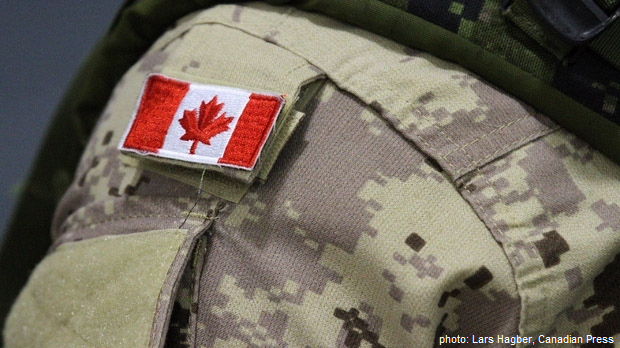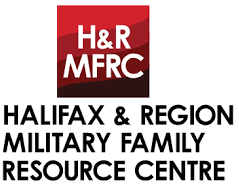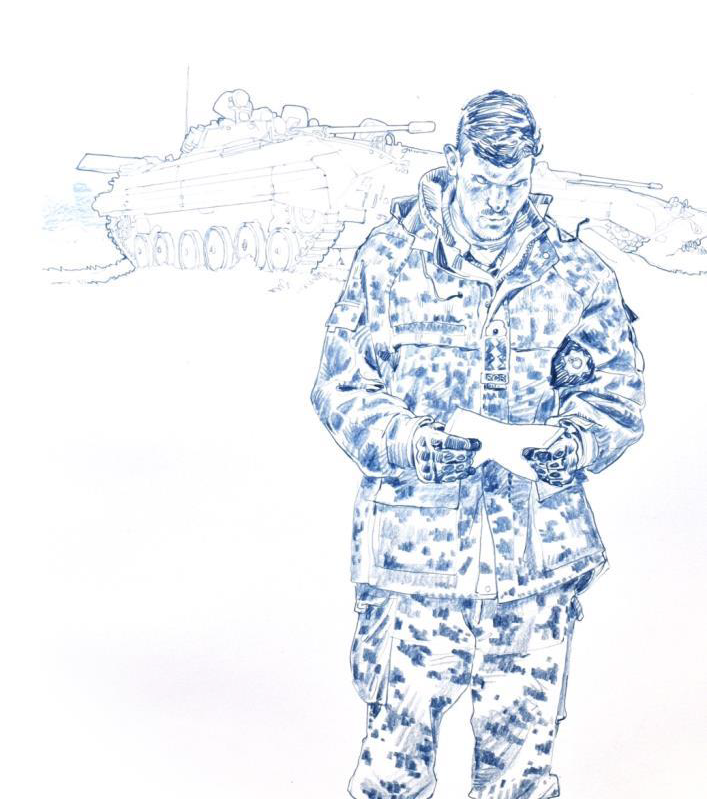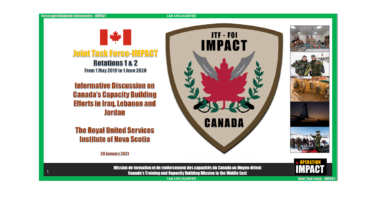Canadian Armed Forces Recruiting
The Security Affairs Committee (SAC) of the Royal United Services Institute of Nova Scotia is monitoring progress of initiatives listed in Canada’s new defence policy “Strong, Secure Engaged” (SSE). There are 111 distinct initiatives in the SSE – other initiatives can be inferred from the policy’s text. Progress with the initiatives is being noted from official news releases and media reporting, and from answers received to questions put to the Department of National Defence (DND).
The following reports on the first, on SSE initiative number 13, of questions that are being posed to the Department of National Defence.
In the SSE, initiative 13 is: “To fully leverage Canada’s diversity, the Defence team will: Place a new focus on recruiting and retaining under-represented populations within the Canadian Armed Forces, including, but not limited to, women, Indigenous peoples, and members of visible minorities.”
Question from RUSI(NS): What is the status of efforts to lift the citizenship requirement for applicants to the Canadian Armed Forces (CAF)? This question is in the context of February 2019 reports of pilot and sailor shortfalls in CAF manning, and an older article “Military looks at foreign recruits to boost ranks”.
The reply was comprehensive and as such is reproduced below (with minor editing):
“SSE 13 aims to place a new focus on recruiting and retaining under-represented populations within the CAF, including, but not limited to, women, Indigenous peoples and members of visible minorities.
As a general rule, the CAF enrols only Canadians citizens.
There are some very specific exceptions that fall under the Skilled Military Foreign Applicant (SMFA) entry program.
The SMFA program is open for individuals with a specialized skill set that would reduce training costs or fill a special need within CAF capabilities, such as a trained pilot or a doctor.
The decision to accept a foreign national or a permanent resident in the CAF is based on several factors, including available openings in their chosen occupation, input by the CAF Occupational Advisor, and experience of the foreign applicant.
Foreign nationals and permanent residents must first meet Immigration, Refugees and Citizenship Canada (IRCC) guidelines and requirements before being processed through the CAF recruiting system. The CAF does not have the authority to waive citizenship requirements.
Foreign nationals and permanent residents go through the same recruiting process and timelines as Canadian residents, with the added requirement for a Citizenship Waiver Request Letter.
In addition, foreign military members who wish to join the CAF who are or have been on exchange military service with the CAF, including those that were attached or seconded to the CAF, can apply for citizenship using IRCC’s fast-track process. See details at “Find out if you’re eligible for citizenship: Canadian Armed Forces.”
Two foreign nationals have been accepted through the SMFA during the past Fiscal Year 2017/2018. It is understood that many foreign nationals and permanent residents have applied to join the CAF but the majority have been refused as they do not meet IRCC guidelines and requirements.
In line with the Government of Canada’s objective of raising the numbers of CAF personnel, there are currently initial discussions ongoing to review the possibility for foreign nationals’ recruitment beyond skilled applicants. It is too early to mention anything about any results or conclusion of such review.”
A PDF of this report is available here.




